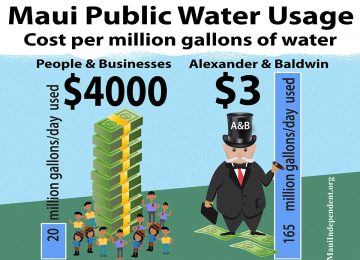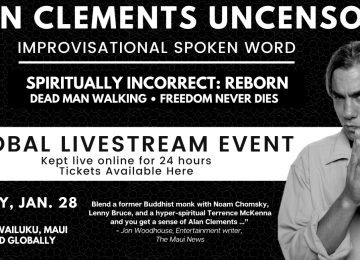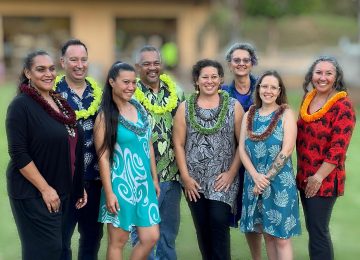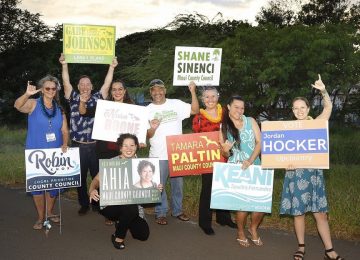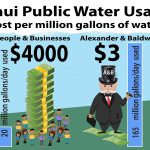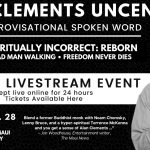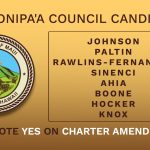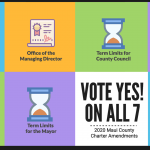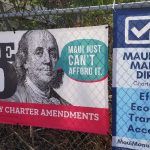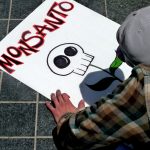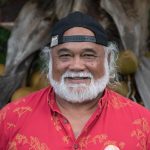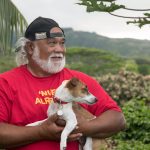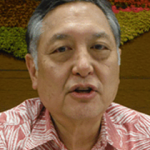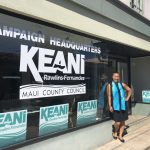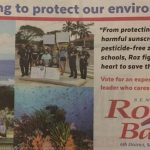For too long certain politicians in Hawaii have stonewalled pesticide regulation typically arguing they have to protect the economic interests of small farmers across the state. It’s a myth, which has been exploded by new research by Autumn Ness, who is on the Hawai’i Center for Food Safety’s Advisory Board.
“The small farmer argument is just not true,” says Ness. “As we speak (on 4/13/2018) the Farm Bureau is at the state legislature telling people the new SB 3095 bill will affect small farmers. They have zero data to back it up. They are lying. We need to get the message out.”
Ness analyzed data from the Department of Agriculture and came to some stunning conclusions. “The bill would only affect anyone who uses more than 35 gallons of Restricted Use Pesticides (RUPs) a year,” Ness explains. “That would only affect the 45 largest, most profitable agriculture operations in the state which use almost 100% of RUPs.”
“There are 7,000 farms in Hawaii, and 3,500 say farming is their primary source of income,” she discovered. “Of those 3,400 don’t use Restricted Use Pesticides at all.
“In 2017, only 106 bought RUPs, and of those 106 about half used RUPs really sparingly. The top two users of RUPs used 2,500 and 3,500 gallons of RUPs last year, while the majority use 5, 10, maybe 15 gallons.”
Senate Bill 3095 hd1, which has just been passed by the House, would impose transparency and buffer zone requirements (around schools) on agricultural businesses that use substantial amounts of Restricted Use Pesticides. These pesticides are not available to the general public and are known to adversely affect people, animals, and the environment.
“This bill would only affect anyone who uses more than 35 gallons of RUPs a year,” Ness explains. “That would only affect the 45 largest, most profitable agriculture operations in the state which use almost 100% of RUPs.”
We’re talking about responsible regulation of the 1.5% of farm operations in the state that account for 99.5% of restricted use pesticides.
“It’s a good, modest piece of legislation,” she notes. “After years of being stonewalled we’ve made it this far. We need the Senate to agree to the House version and pass it. We’re not talking about small farmers, we’re talking about responsible regulation of the 1.5% of farm operations in the state that account for 99.5% of restricted use pesticides.”
After the Senate deleted mandatory pesticide disclosure and notification sections in the bill, the House added amendments to secure better transparency
The resulting SB3095hd1 “proposes meaningful pesticide regulation of the very largest users of Restricted Use Pesticides, requiring disclosure, “no spray zones” around all schools, and a complete ban of the pesticide and neurotoxin chlorpyrifos,” explains Gary Hooser, president of the Hawai’i Alliance for Progressive Action.
“Thanks to Senator (Russell) Ruderman for speaking out in support of protecting people’s health and pointing out the ludicrous nature of the proposal. How does the state or individuals make informed decisions on pesticide protection when there is no disclosure requirement?”
Around 2,000 pages of testimony regarding the bill were submitted during three different hearings since it was introduced. Public testimony was overwhelmingly in support of the proposal.
Monsanto naturally opposed the bill. In testimony, Dan Clegg, Monsanto Hawaii business operations lead, wrote: “Monsanto and other farmers in Hawaii need to be able to control pests in their crops. Insects, weeds and diseases can have a devastating effect on crop yield and quality, and farmers need to have a variety of tools available to help control them.”
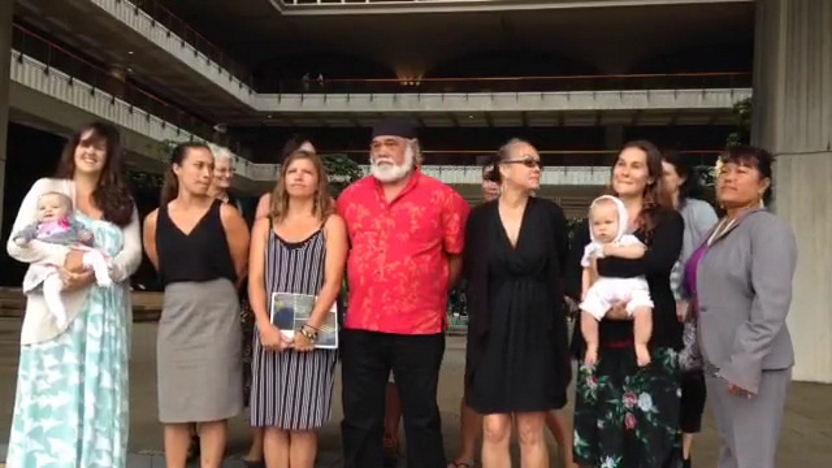
Maui activists including Autumn Ness (with papers) and Council members Alika Atay and Elle Cochran, testifying in Honolulu.
Hawaii could become the first state in the nation to ban chlorpyrifos.
One of the key measures in the bill would ban the use of all pesticides containing the toxic chemical chlorpyrifos. Hawaii could become the first state in the nation to ban it.
Prolonged exposure to chlorpyrifos has been linked with a risk of lung cancer, autoimmune disease, and cognitive impairment and developmental delays in children.
Chlorpyrifos detected in the air of Waimea Canyon Middle School
“Of the 3,500 farms in Hawaii only 39 purchased a chlorpyrifos-based pesticide,” Ness says. “It’s been proven to permanently reduce cognitive capacity and cause developmental delays. It’s already banned for home use. It’s been found in the air of (Kauai’s) Waimea Canyon Middle School on. It’s time to take action to protect our kids.”
The chlorpyrifos ban would take effect at the beginning of next year, with one exception. Upon request, the Department of Agriculture could authorize use of pesticides containing chlorpyrifos until the end of 2021 – AND they would publicly disclose the names of all those applying for and being granted such a permit.
Hawaii’s current handling of chlorpyrifos is flat-out unacceptable
In an editorial this week the state’s largest newspaper the Honolulu Star-Advertiser stated that chlorpyrifos should be banned in Hawaii. “While the fate of SB 3095 is still foggy, what’s clear is that regardless of political shifts in Washington, D.C., Hawaii must not delay the effort to set and enforce chlorpyrifos-related protections that prioritize health and safety. What’s indisputable is that Hawaii’s current handling of the chemical is flat-out unacceptable.”
Commenting on the proposed bill Senator Russell Ruderman stated: “The buffer zone between schools and field spraying would be increased. The international seed companies that do most of the spraying will also be required to disclose what chemicals they are spraying. This will be helpful to doctors who will now be able to check to see which poison may have triggered a reaction in a patient. School children were poisoned twice by pesticide drift. Some of the children were taken to the hospital. In recent years 5,000 people have marched through the streets of Lihue for pesticide safety and the right to know what’s being sprayed next to their homes, schools and churches.”
At this moment the Senate can either “Agree or Disagree” to the House version. If the Senate “Agreed” then the measure would be scheduled for a full Senate vote and then sent to the Governor for approval or veto. As indicated in the “official status”, the Senate has “Disagreed.”
Gary Hooser explains the arcane process that follows. Typically the “lead chair”, in this case Senator Gabbard, who has already publicly indicated his support of SB3095hd1, will normally make a recommendation via an official Senate Agree/Disagree Form” requesting approval from other involved Chairs. In this case that form would then be circulated to those Chairs who had previously been involved in hearing various versions of SB3095. These Committee Chairs including Senator Baker (CPH), Senator Kidani (Education) and Senator Dela Cruz (WAM) – (in that order) would then be given the opportunity to concur with Senator Gabbard’s recommendation to “Agree” or to oppose it. The final signature on the form will be that of the Senate President. Any of the Chairs, and/or the Senate President could thus block Senator Gabbard’s effort and inclination to “Agree” and thus thwart the effort to “Agree”.
If, ultimately the Senate maintains the “Disagree” position then Conference Committee is normally the next step.
“All of the serious discussion that occurs in conference committee is done in private, behind closed doors. Because the discussions in Conference Committee are done behind closed doors, it is impossible to determine responsibility for any negative outcome. No public testimony is allowed.”
“The House draft version of 3095 is a summary of all the important components of a bunch of different bills,” says Ness. “We’re still in a holding pattern. Anything could happen at this point.”
To contact relevant politicians:
Senator Roz Baker (South & West Maui) – phone: 808-586-6070, senbaker@capitol.hawaii.gov
Senator Michelle Kidani – phone: 808-586-7100
senkidani@capitol.hawaii.gov
Senator Donovan Dela Cruz – phone: 808-586-6090
sendelacruz@capitol.hawaii.gov
Senator Mike Gabbard – phone: 808-586-6830
sengabbard@capitol.hawaii.gov




